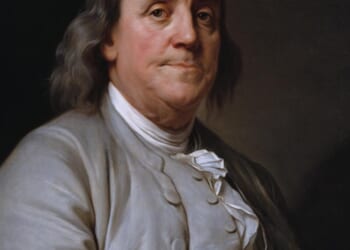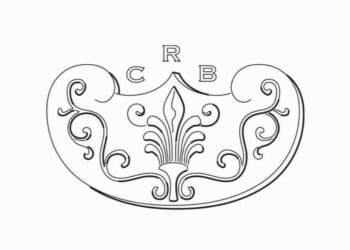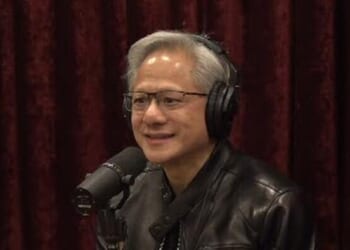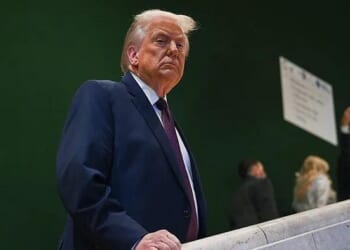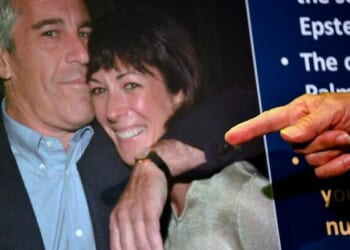It was 1981, and a series of brightly colored TV-show posters hung on the chalkboard—Howdy Doody, Superman, a ventriloquist dummy, and a few others. The third-grade teacher polled the class on the previous night’s homework assignment to find out from their parents which of the given options had been their favorite to watch as a child.
I was sitting in that class, and when she got to me, I was unable to answer. “My parents grew up in Cuba so, none of these.”
It fell silent and every eye in the room focused on me. One of the mean kids called out, “She’s Cuuuuuuban,” in the same tone you’d say someone had terrible body odor.
In South Florida in the wake of the Mariel Boatlift, there was strong anti-Cuban sentiment. My teacher, in all charity and goodwill, admonished that student and explained that immigrants had come to the United States seeking a better life.
That afternoon, when I relayed this story to my mother, she became indignant. Her family had not come seeking a better life, she said. Then she nailed it: “We came seeking freedom.”
That distinction always stuck with me, well before I knew why.
In the late 1950s, my teenage parents left Cuba with their families before Castro locked the island down. Years later, they met in college in Florida, married, and had me. So immigration (now called “migration,” as though people are animals—a topic for another day) is a hot topic for me. But what right do I have to think a nation can justly limit who enters when I would not be here were it not for U.S. immigration policy?
Well, what is the purpose of immigration policy? It is now most often framed in terms of the U.S.’s obligation to provide direct assistance to prospective immigrants (offer them a “better life”?) rather than about opening up to them the blessings of liberty: the freedom to build a life and enjoy the fruits of one’s labor.
Some believe the blessings of liberty—a phrase which comes from the Preamble to our Constitution—are represented by the Statue of Liberty, which is often invoked as a national symbol that means the United States welcomes all immigrants. Bishop Robert Barron, when discussing a specifically American approach to immigration last year, invoked the Statue of Liberty and, in particular, the “huddled masses” mentioned in the poem at its base—but he did not complete the line in which that famous phrase appears.
“The New Colossus,” written in 1883 by Emma Lazarus and enshrined at the base of Lady Liberty, describes the poor, huddled masses as yearning not for assistance, or even for a “better life,” but yearning to breathe free.
Who was Emma Lazarus? Few know that this New York–born poet came from a wealthy, well-educated, Sephardic Jewish family whose American roots dated to colonial times—and even included a U.S. Supreme Court Justice. Beyond her writing, she volunteered as an English teacher to Jewish immigrants and helped found the Hebrew Technical Institute to provide them with job training.
Lazarus gives Lady Liberty the name “Mother of Exiles” and describes her taking in the “homeless,” that term meaning not what we would today call the “unhoused” but, instead, men without a country.
Now, surely there is room for both, but should exiles “yearning to breathe free” be evaluated differently as possible new American citizens from those seeking “a better life”? Or, are we wrong to even ask this question?
Pope Leo XIV wrote in Dilexi Te that the Church knows that “in every rejected migrant, it is Christ himself who knocks at the door of the community.”
I suppose in response I want to ask, in all charity, really? Or is this hyperbole for effect? Every single one? If this is the case, why are any limits on immigration ever permitted by Catholic teaching? Why have nations at all then?
Individuals are not statistics, but statistics are the aggregate of individual actions. When a prospective immigrant is a criminal, and/or when statistics show dramatic increases in crime by the nationality he is a member of, should that factor in at all? What about when he has evidenced no aspiration, affinity, or even openness to the values that define the host nation, yet he wants to enter and remain (unlike the Holy Family who, it is so often pointed out to us, sojourned in Egypt during a period of danger but returned to their homeland when the danger passed)? Does a civil government have any responsibility whatsoever to its citizens to preserve their way of life?
When the Church in any Christian culture sets forth as part of her salvific mission the worthy endeavor of accompanying immigrants, to what extent must that accompaniment include evangelization, even the bare minimum of proclaiming that the Gospel is true, that Christ died for us, and that we need Him to go to Heaven?
“Evangelize” was not listed among those action words listed by Pope Francis, quoted by Leo in Dilexi Te, that “our response to the challenges posed by contemporary migration can be summed up in four verbs: welcome, protect, promote, and integrate.”
And finally, I suppose it goes without saying, or should, that Christ wants us to be Christian. If He is knocking at the door of a community, He is probably going to tell us to repent and believe in the Gospel. Is it wrong for the Church, in a historically Christian country, to seek to preserve that nation’s Christian character by urging the civil government to limit the number of non-Christians it admits, especially if she is not making it an express priority to evangelize them?
I would say it is not wrong.
For freedom Christ has set us free. Properly understood, freedom orients us to Heaven. Even in the narrower political sense of the word, self-government and individual liberty orient us—even force us—to make good use of our talents in service to others, for the sake of ourselves and our families.
Give us your huddled masses yearning to breathe free, indeed!
This article was originally published on Crisis Magazine.




